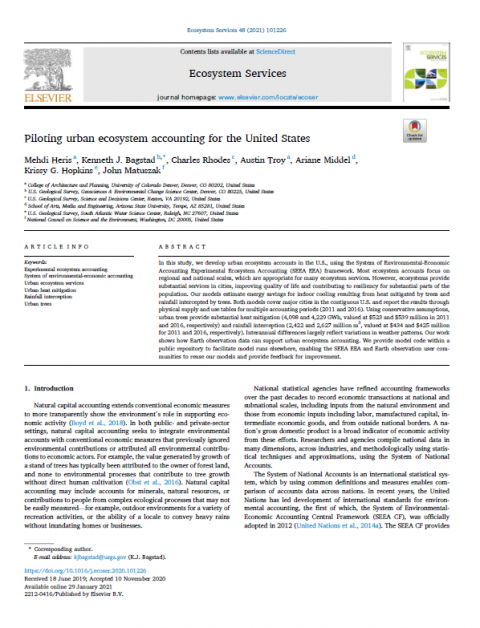Piloting urban ecosystem accounting for the United States

Document Summary:
This study describes pilot urban ecosystem accounts in the U.S., using the System of Environmental-Economic Accounting Experimental Ecosystem Accounting (SEEA EEA) framework. The models estimate energy savings for indoor cooling resulting from heat mitigated by trees and rainfall intercepted by trees. Both models cover major cities in the contiguous U.S. and report the results through physical supply and use tables for multiple accounting periods (2011 and 2016). Using conservative assumptions, urban trees provide substantial heat mitigation (4,098 and 4,229 GWh, valued at $523 and $539 million in 2011 and 2016, respectively) and rainfall interception (2,422 and 2,627 million m3, valued at $434 and $425 million
for 2011 and 2016, respectively). The work also shows how Earth observation data can support urban ecosystem accounting.
Link to an External Document:
